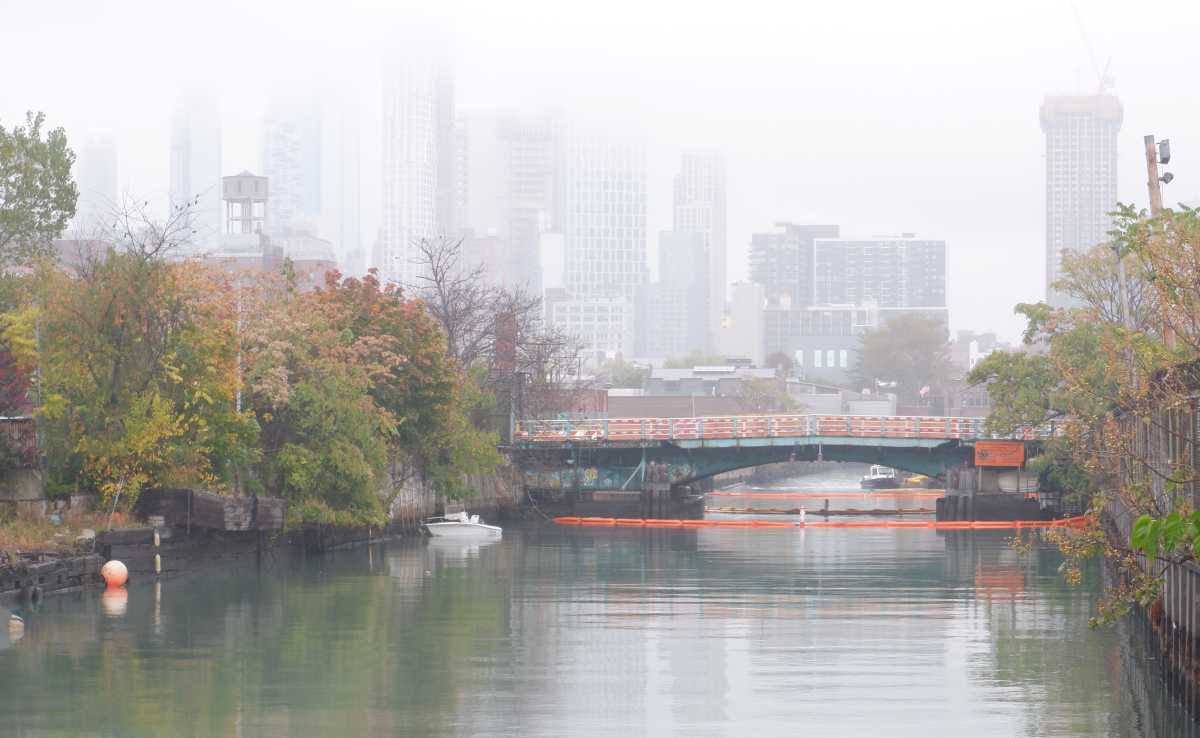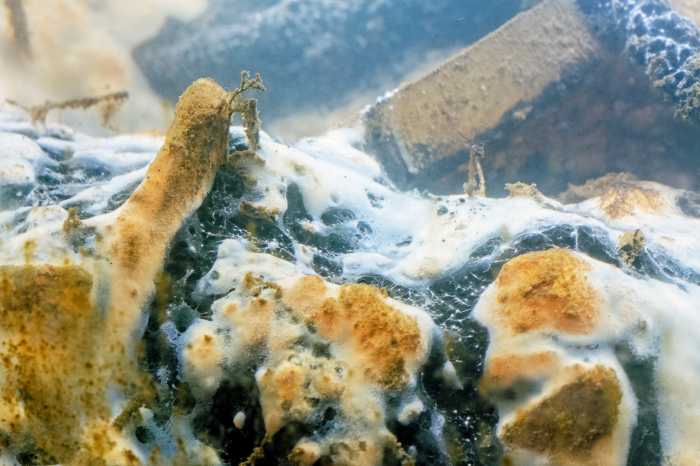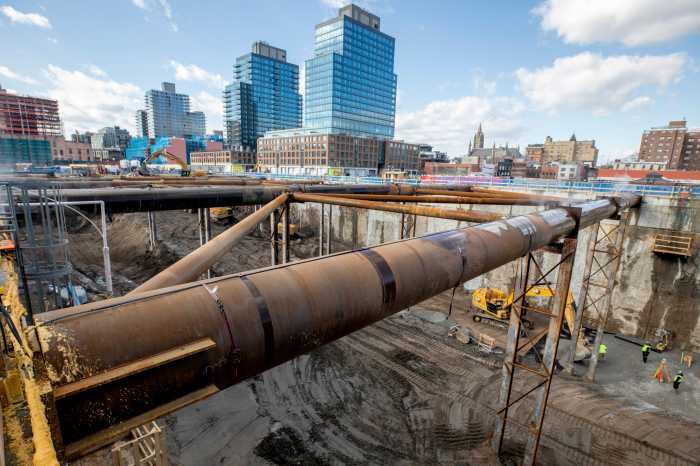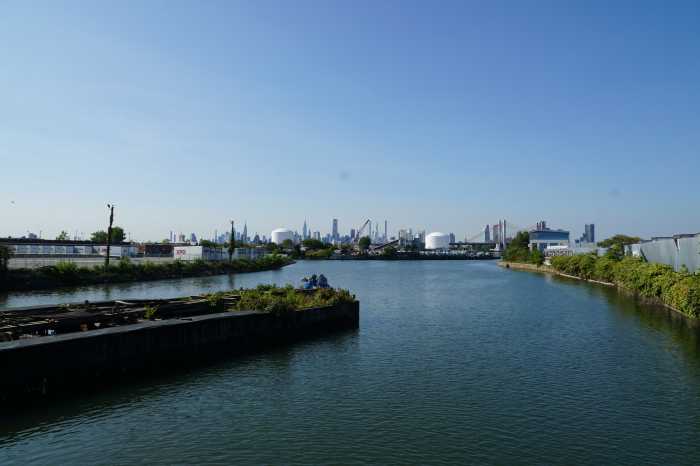The city will have to pay for its own crap!
Big Apple tax payers could be on the hook for more wastewater infrastructure in Gowanus if two massive planned retention tanks can’t handle the increased sewage stemming from the neighborhood’s impending rezoning, federal officials said Tuesday.
The proposed land use change would see thousands of new residents flowing into the area over the next 15 years, which could cause the noxious canal to be recontaminated after the Environmental Protection Agency’s soon-to-begin Superfund Cleanup — and federal authorities are refusing to foot the bill to install new infrastructure, or to cleanup the canal a second time.
“If we make the assessment that these additional discharges recontaminate the canal within the limits that we have defined… then we will require… additional infrastructure measures,” EPA’s Christos Tsiamis told watchdogs with the Gowanus Canal Community Advisory Group on Oct. 26.
The feds’ warning comes as the city is already tasked with constructing two massive tanks, which will hold a combined 12 million gallons of wastewater, at a total price of $1.3 billion.
The tanks — the first of which is scheduled to be built by 2032 — will reduce sewage and stormwater flushing into the canal and help avoid recontamination after EPA’s contractors dredge and cap the channel’s gunk-filled bed, starting Nov. 16.
The city’s Department of Environmental Protection — the agency overseeing the tank project — has asked for a 12-18 month delay to build the cisterns, citing municipal revenue drops due to COVID-19, but the EPA has yet to grant that extension.
With the Department of City Planning forecasting some 8,200 new housing units to come to the area along the noxious canal by 2035 due to the rezoning, the feds say Gotham might have to build out the underground infrastructure to cope with all those newcomers and their waste.
By the most recent city estimates from a 2019 scoping document, officials project the rezoning will lead to a more than tenfold increase in residential wastewater generation, from 178,795 gallons per day to almost two million.
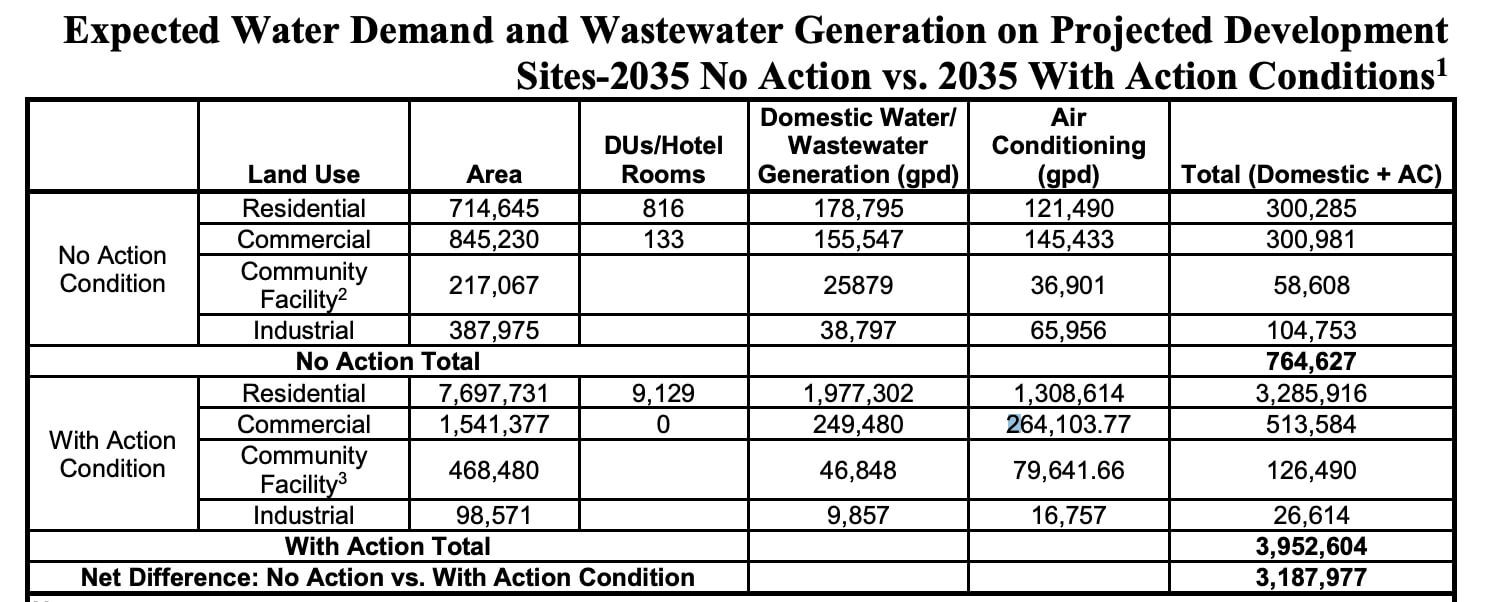
The solution to deal with that won’t be expanding the tanks though, according to a lawyer for EPA, because changing the years-in-the-works plans so late in the game would be too complicated.
“[The city] may have to run additional pipes or micro-tunnels or whatever it is,” said Brian Carr at the CAG meeting. “It may not be that we take the eight-million gallon tank when it’s almost built and say, ‘Ok now it’s gotta be 12 million gallons.’ That’s really not going to be possible for the construction timeline.”
Carr added that federal officials will want a block-by-block analysis of how much more waste the city projects when planners conduct an environmental impact statement as part of the public land use review procedure which is set to kick off in January.
“The city is rezoning specific blocks and the infrastructure capacity is different from block to block,” the attorney said. “We would like the city to analyze and ensure that there is sanitary and stormwater capacity that is in place for each of the blocks that are going to be rezoned.”
DCP and DEP are set to unveil more details for the rezoning during a Dec. 2 “infrastructure update,” according to a spokesman for the former agency.
“The federal cleanup of the Gowanus Canal is key to creating a more equitable and greener future for this Brooklyn neighborhood, and the wider city,” said Joe Marvilli in a statement. “The Department of City Planning and Department of Environmental Protection continue to coordinate and will have more information on stormwater infrastructure at our meeting on Dec. 2.”
The city Council in August passed legislation for DEP to craft new regulations requiring developers to construct or retrofit their buildings to keep stormwater and sewage from flowing into the city’s waters.
The agency is still hammering out the details in the coming months for the new regulations — dubbed the Unified Stormwater Rule — and Tsiamis said EPA still has to review the plans before commenting on how they’ll figure into their cleanup.
“I was just recently informed of that,” said Tsiamis. “I have to review that information so we will be better prepared to answer that question once I get the information and see how that will play into our interaction with the city.”


